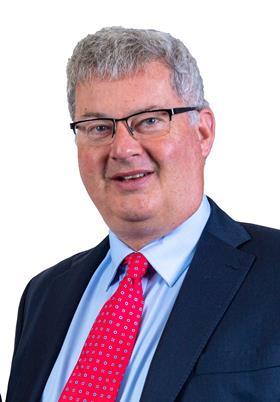Some of the biggest beasts in the north west personal injury market are engaged in a High Court dispute over referral payments, it has emerged.
The litigation was set out in JMW Solicitors LLP & Ors v Injury Lawyers 4U Ltd, as the original law firm participants in a start-up claims management venture objected to paying the same service charge as firms who signed up later.
JMW, Ralli Limited and Howe & Co Solicitors brought the claim against Injury Lawyers 4U Limited and its director James Maxey and Daniel Slade. Maxey and Slade are also both directors of PI firm Express Solicitors.

The claim had its roots in the 2002 formation of Injury Lawyers 4U, a corporate vehicle for generating leads for personal injury cases through TV advertising.
It was created when three partners of PI firm Amelans tried to raise £1m through selling shares for an annual £10,000 guaranteeing a coveted ‘slot’ for the allocation of cases.
A second funding round brought in some £6m through sales of £15,000 shares to a significant number of new firms who were labelled as ‘panel members’. This slot price differential would remain in place until April this year, when it was decided that all members should pay the same annual fee.
The court heard that a deed was entered into between Injury Lawyers 4U and the original members in 2003, which the claimants argued remained in full force.
In 2018, Injury Lawyers 4U director Andrew Twambley informed the founding shareholders that the price differential would end. It was alleged that he did this due to pressure from a panel member, Express Solicitors, which by that time was contributing more than £1m a year for the purchase of slots.
Maxey and Slade became directors of Injury Lawyers 4U in 2023. It was the claimants’ case that the proposed end of the differential price was to the personal advantage of Maxey and Slade, through their involvement in Express, and to the disadvantage of the founding firms, including the claimants, given that the additional value that they had previously enjoyed would be removed.
The defendants applied for summary judgment on the basis there was no contractual provision for the slots to always be priced differently. The claimants, it was submitted, had no prospect of being able to persuade the court at trial that the parties were bound by any warranty.
Giving judgment on the application, His Honour Judge Cawson KC found in favour of the defendants on the issues around the warranty and deeds that had been drawn up by the parties, effectively ruling there was no contractual reason why the differential should remain.
But the judge did not throw out the claimants’ challenge as to the validity of the appointment of Maxey and Slade as directors. He gave the claimants 14 days to issue an application to amend the particulars of claim and advance alternative arguments.
This article is now closed for comment.




























12 Readers' comments